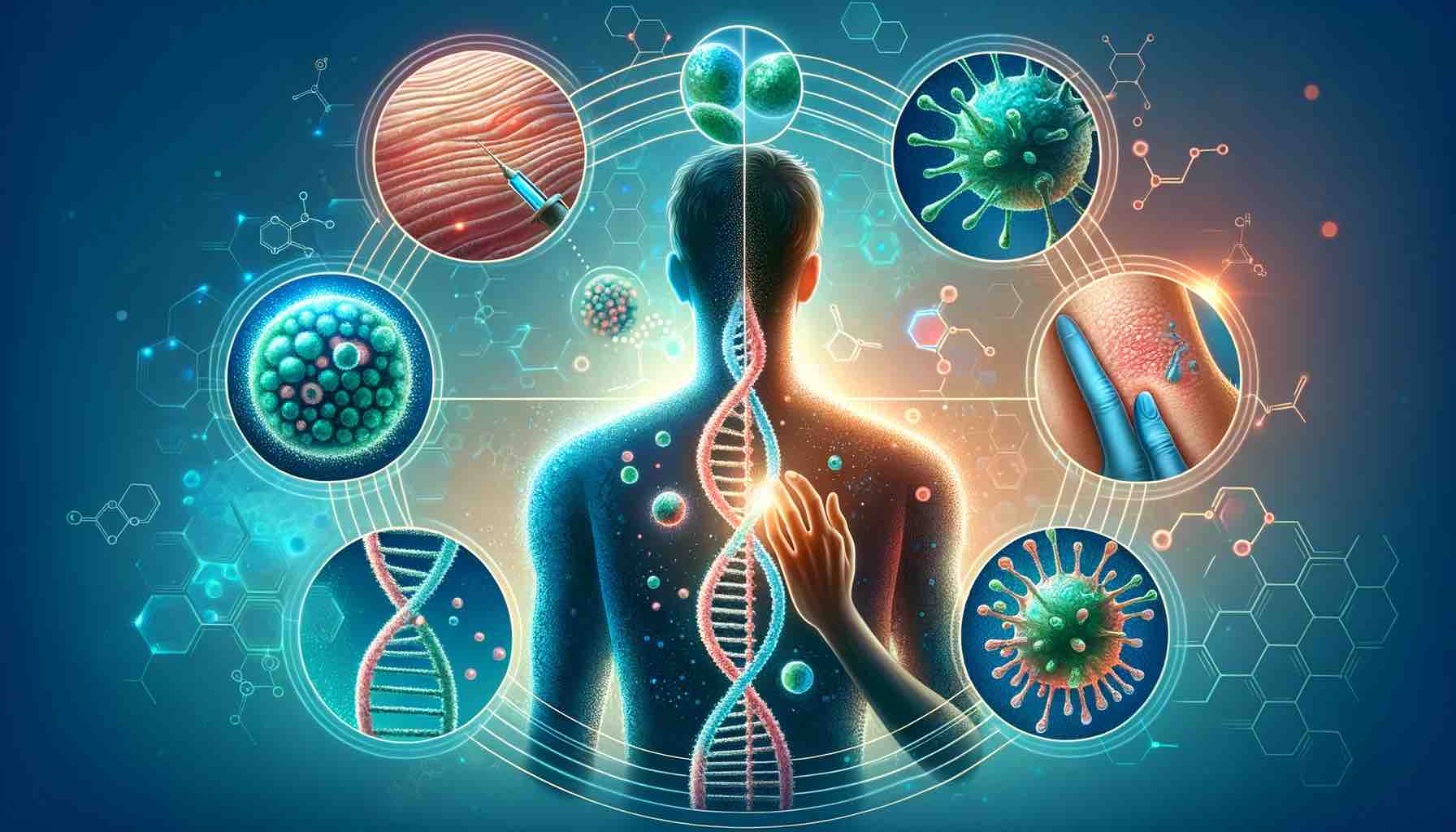
In the intricate dance of health and disease, the gut microbiome emerges as a pivotal player, orchestrating a myriad of bodily functions beyond digestion. Groundbreaking research is continually unveiling how this complex ecosystem within our gastrointestinal tract influences not just our physical health, but also our mental well-being, making the adage “you are what you eat” more relevant than ever. Let’s dive into the fascinating world of the gut microbiome, shedding light on its critical role and how you can nurture it for your overall health.
The Gut-Brain Connection: A Two-Way Communication Superhighway
The gut-brain axis represents one of the most compelling discoveries in recent science, illustrating a bidirectional communication network between the gut microbiome and the brain. This connection means that the state of our gut can directly influence our mood, cognitive abilities, and mental health. Conversely, our brain’s health impacts our digestive system’s functioning, highlighting the importance of a balanced gut microbiome for mental well-being.
Dietary Decisions: Shaping Your Microbiome’s Health
Our dietary choices play a crucial role in determining the composition and health of our gut microbiome. Diets rich in diverse, nutrient-dense foods foster a robust microbiome, while processed foods and high-sugar diets can lead to dysbiosis—a microbial imbalance linked to numerous health conditions, from obesity to depression. Incorporating fermented foods, fiber-rich plants, and omega-3 fatty acids into your diet can support microbial diversity and resilience, laying the foundation for a healthy gut.
The Immune System and the Microbiome: An Alliance for Health
The gut microbiome is integral to the development and function of the immune system. A healthy, balanced microbiome supports immune regulation, helping to protect against pathogens while preventing overreactions that could lead to autoimmune disorders. The right mix of gut bacteria can enhance the body’s ability to fend off infections and may even improve the efficacy of vaccines.
Gut Health and Chronic Disease: A Preventative Approach
Emerging research indicates that the gut microbiome plays a significant role in the development and prevention of chronic diseases. Dysbiosis has been linked to conditions like inflammatory bowel disease (IBD), type 2 diabetes, and cardiovascular disease. Adopting a gut-friendly diet, rich in whole foods and low in additives, alongside a healthy lifestyle, can mitigate the risk of these diseases.
Practical Tips for Nurturing Your Gut Microbiome
1. Diversify Your Diet: Aim for a wide variety of fruits, vegetables, legumes, and whole grains to encourage microbial diversity.
2. Fermented Foods Are Your Friends: Incorporate foods like yogurt, kefir, sauerkraut, and kimchi to boost your intake of beneficial bacteria.
3. Fiber is Fundamental: Dietary fiber feeds beneficial gut bacteria, promoting their growth and activity. Aim for at least 25-30 grams of fiber daily.
4. Stay Hydrated: Adequate water intake is crucial for maintaining mucosal lining in the gut, facilitating the movement of food, and supporting overall digestive health.
5. Consider Prebiotics and Probiotics: Supplements can be beneficial, especially after antibiotic use or for individuals with specific health conditions. However, consult a healthcare provider for personalized advice.
Conclusion: A Journey to Wellness Through the Gut
The gut microbiome holds the key to unlocking optimal health, influencing everything from our immune response to our mood. By making informed dietary and lifestyle choices, we can harness the power of our microbiome to enhance our health and well-being. Remember, nurturing your gut microbiome isn’t just about improving digestion—it’s about fostering a holistic state of health that radiates through every aspect of your being.
FAQs for “Is Your Diet a Gut-Wrenching Horror Story or a Gut-Loving Fairytale?”
1. What exactly is the gut microbiome?
The gut microbiome refers to the vast community of microorganisms, including bacteria, viruses, and fungi, that live in your digestive system. These microbes play a crucial role in digestion, immune function, and even mental health.
2. How does my diet affect my gut microbiome?
Your diet directly influences the composition of your gut microbiome. Consuming a variety of nutrient-dense, fiber-rich foods supports beneficial bacteria, while a diet high in processed foods and sugar can lead to an imbalance, negatively affecting your health.
3. Can improving my gut health help with weight management?
Yes, a healthy gut microbiome can play a significant role in weight management by influencing metabolism, fat storage, and hunger signals, making it easier to maintain a healthy weight.
4. What are prebiotics and probiotics, and why are they important?
Prebiotics are dietary fibers that feed beneficial gut bacteria, while probiotics are live beneficial bacteria found in certain foods and supplements. Both are essential for maintaining a healthy, balanced gut microbiome.
5. How often should I eat fermented foods?
Incorporating fermented foods into your diet several times a week can help increase your intake of probiotics, supporting your gut health.
6. Is it necessary to take probiotic supplements?
While not necessary for everyone, probiotic supplements can be beneficial in certain situations, such as after antibiotic treatment or for individuals with specific digestive issues. Always consult a healthcare provider before starting any supplement.
7. Can stress affect my gut microbiome?
Yes, chronic stress can negatively impact your gut microbiome, leading to an imbalance. Managing stress through techniques like meditation, exercise, and adequate sleep can help protect your gut health.
8. What are the signs of an unhealthy gut?
Symptoms of an unhealthy gut may include digestive issues like bloating, gas, constipation, or diarrhea, as well as mood swings, fatigue, and food cravings.
9. How can I quickly improve my gut health?
Start by diversifying your diet with plenty of fruits, vegetables, and whole grains, reducing your intake of processed foods, staying hydrated, and considering incorporating prebiotic and probiotic foods into your meals.
10. Are there any foods I should avoid to protect my gut health?
Limit foods high in processed sugars, artificial sweeteners, and trans fats, as these can disrupt your gut microbiome balance and contribute to inflammation.
Blog Tags
gut health, microbiome, diet and nutrition, probiotics, prebiotics, fermented foods, digestive wellness, immune system, stress management, healthy eating













